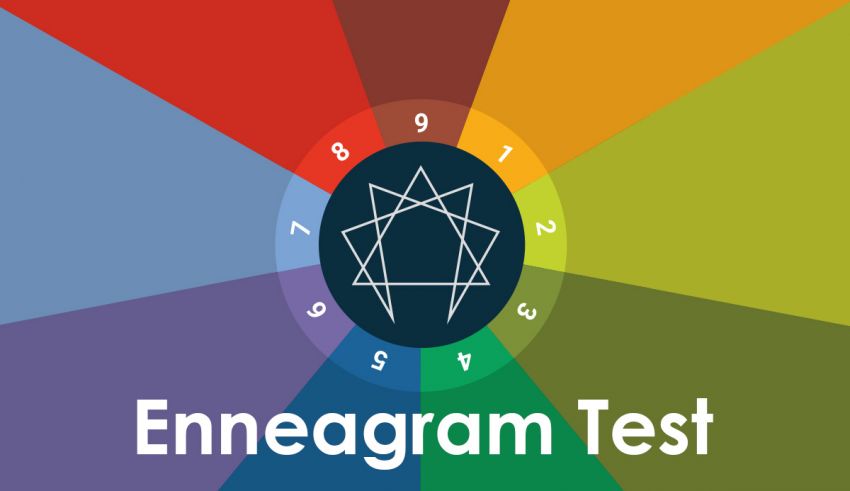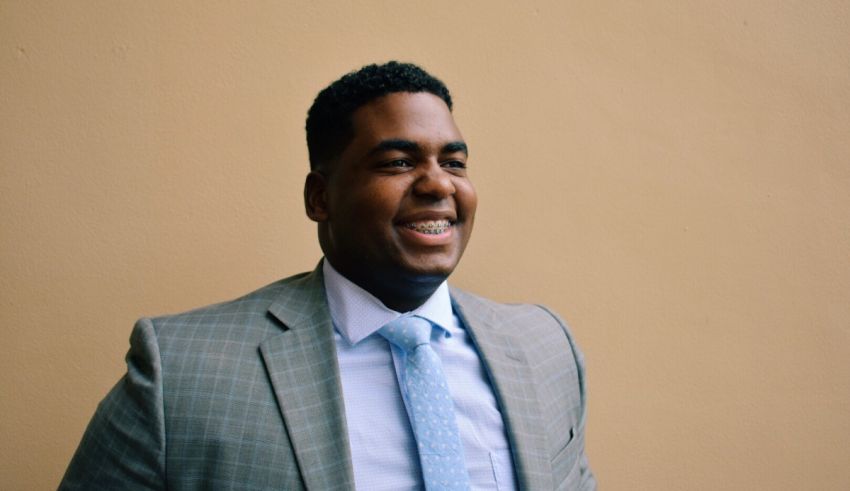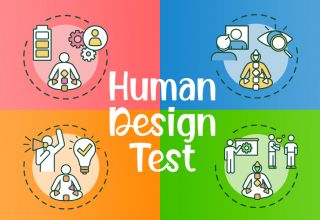
The Enneagram Test Explained
It is a personality typology questionary to classify human nature. It categorizes you into one of the nine Enneagram personality types. The test is in forced-choice format, and the participants are categorized according to their self-report.
The goal is to identify what type of person you are. However, the results only include the nine Enneagram types, the perfectionist, the giver, the performer, the romantic, the observer, the loyal skeptic, the epicure, the protector, the mediator.
History of the Enneagram of Personality
Don Richard Riso, the author of the Personality Type book, writes, “One of the main problems with introducing the Enneagram is that its exact origins are lost to history.” However, some suggest that the idea belongs to the Sufis’ (mystical Muslims) traditions. Others believe that the Enneagram symbol existed before 2500 B.C. in Babylon or elsewhere in the Middle East.
The term comes from Greek “Enna,” meaning nine. And Rios translates Enneagram to “A Nine Diagram” in his book.
But it was Gorge Ivanovich Gurdjieff (1877-1949) who brought the concept to Europe. He was a spiritual teacher who transmitted the symbol to the West. Thanks to his efforts, more people started studying the subject during the 1910s and 1920s.
The RHETI is known as the first comprehensive questionary about the nine personalities. It was created in the 1990s by Riso and Hudson. But other scholars and psychologists have introduced revised and improved forms of the quiz ever since.
Take the Enneagram Test Based on David Daniels’ Work
David N. Daniels, M.D was a professor of psychiatry at the Medical School Clinical school of Stanford University. His book “The Essential Enneagram” is one of the highly regarded works in the field of personality typology. The test on this page uses his findings to deliver the most accurate results.
His book, initially published in 2000 and revised in 2009, is known as “the first and only scientifically determined Enneagram personality test.
Test terminology
Dr. Daniels uses specific terminology in his book to offer detailed descriptions about each type. Knowing the terms helps you have a better understanding of the results.
- Enneagram Type
The number and descriptive title of each personality. For instance, Type 1, 2, 3, or 9.
- Wings
Personalities on both sides of your type are known as your wings. For example, Type 9’s wings are 8 and 1.
- Security and Stress
Security is the personality to shift into when you feel relaxed and secure or when you are exhausted. Stress is the character you show when you are pressured.
If you look at the Enneagram symbol, each type has two arrows pointing towards and away from them. The one going away from the type number indicates security. And the one that is pointing the personality shows stress.
Additional info the Enneagram Test offers
#1: Your adjectives
By the end of the questionary, you receive a list of positive and negative words describing your persona. Dr. Daniels says, “The key adjectives are like a checklist to see if the personality type under consideration applies to you or someone else.”
#2: The basic proposition
In the Enneagram Test, you also find out your personal core beliefs. It identifies what parts of life are out of your sight. Moreover, it determines your strategies and how you adapt to struggles.
#3: Principal characteristics
The results also let you know what your strengths are, what your attention is focused on, what you put your energy into, and what your fears are.
#4: Your stress, anger, and defensiveness
The Enneagram Test lets you know what causes anxiousness, annoyance, or defensiveness. For example, Ones get stressed by feeling overburdened or by having too many things to correct.
#5: Your possible personality disorder
Richard Riso created a table in his 1999 book which specifies the corresponds between the DSM-5 PDs and the Nine Types. Below you can see a sample model of the said chart.
| Enneagram Type | Personality Disorder |
| The Reformer | Compulsive and depressive |
| The Helper | Histrionic personality disorder |
| The Motivator | Narcissistic PD |
| The Individualist | Avoidant, Depressive, and Narcissistic PD |
| The Investigator | Schizoid, Avoidant, and Schizotypal |
| The Loyalist | Paranoid, Dependent, and Passive-Aggressive |
| The Enthusiast | Histrionic and the Manic-Depressive |
| The Leader | Antisocial |
| The Peacemaker | Dependent, Schizotypal |
How it differs from the actual David Daniel test?
In the original 2007 test in the Essential Enneagram book, you have to discover your type on your own. The questionary starts with you reading nine descriptions. Then, you have to decide which of the said texts explains your character better.
However, during the quiz on this page, the results are generated in real-time and automatically. You do not need to read any cumbersome report before receiving the analysis.
Is the test similar to Riso-Hudson Enneagram Type Indicator?
The RHETI® costs $12 (per try). Plus, it takes 40 minutes for an average person to complete it. However, our Essential Enneagram Test takes you less than ten minutes to finish, and it is 100% FREE.
Regarding the results and typology, both questionaries use pretty similar methods—and the results are similarly accurate.
The Comprehensive Description of the 9 Personality Types
The QuizExpo Enneagram Test uses the nine categories presented by Dr. Daniels. He and his co-writer, Virginia Price, conducted scientific researches to classify and define each persona. Below you can read a brief description of the said groups.
Note: According to a study by Hook, Joshua N., “87% of people who guessed their Enneagram character by reading the nine descriptions were right.” So, if you are a self-aware person, there is a high chance of finding out your personality without taking the test.
But we recommend going through the quiz’s psychological processes for the most reliable analysis.
Parentheses include the RHETI® title of the characters.
Type 1: The Perfectionist (or the Reformer)
You are a responsible, improvement-oriented, and conscientious person. Dr. Daniels describes Ones as “People who approach things in an all-or-nothing way, especially issues that matter to them. Individuals in this group place a lot of value on being strong, honest, and dependable.”
The negative side of being a Type 1 person is having an active inner critic. Plus, you might find it difficult to adapt to new situations or stop self-judgment.
Your core beliefs are based on perfection. In your opinion, people are not accepted for who they are. So, they need to gain love by being a responsible and righteous individual. You should always remind yourself of the fact that we are perfect as we are.
Your attention is focused on distinguishing right and wrong or finding what should be corrected.
Your main fear is making mistakes. And having an internal critic, feeling overburdened, or thinking there is too much to correct causes you stress.
You also become angry when facing unfairness, irresponsibility, or ignorance of rules.
Type 2: The Giver (or the Helper)
Twos are caring, supportive, and helpful. If you are in this category, people consider you a friendly, nice, and generous person. You are all about relationships and try to remain optimistic no matter what. Dr. Daniels describes your persona, “You are sensitive to other people’s feelings. You can see what they need, even when you don’t know them. Sometimes it’s frustrating to be so aware of people’s needs, especially their pain or unhappiness, because you are not able to do as much for them as you would like to.”
The downside of being a Two is that you might become a prideful, intrusive, and dramatic individual. It can also seem challenging to you to say to people you care for. And that leads to feeling controlled or being confused about your emotions. The two feelings are usually the main source of your anxiety and stress.
You almost forget that people can love you without needing you. It seems like your core beliefs revolve around fulfilling others’ needs to the point they cannot live without you. That is how you satisfy your desires and wants.
The needs and wants of others form your attention center, especially when it comes to your loved ones. Moreover, you spend most of your mental energy trying to sense the emotions and wishes of other people.
You are probable to flip out when feeling unappreciated and uncared for. You also find it unacceptable when people do not care for others.
You are afraid of disappointing your loved ones. Plus, it sounds scary to you to become a useless person, and therefore, be subject to rejection.
Your strength lies in being a giving and helpful human. You are also romantic and high-energy, which makes it easier for others to befriend you.
Type 3: The Performer (or the Motivator)
In the Enneagram Test, Threes are called the Performers. If you match this category, you are a fast-paced, goal-focused, and success-oriented individual. You want to get things done in the fastest way possible. And people usually find you a confident, high-energy person.
This is how the Essential Enneagram book describes this category. “Being the best at what you do is a strong motivator for you, and you have received a lot of recognition over the years for your accomplishments. You get a lot done and are successful in almost everything you take on.”
However, the downside of being a Motivator is that you might become impatient, inattentive, and overly competitive.
You believe what gets done is completely dependent on each person’s effort. And you leave no room for possible obstacles or limitations.
Your core beliefs have led to a love-gaining strategy where you try to win love by achieving success. So, your attention and energy are devoted to doing things most accurately and efficiently possible.
When it comes to fear, your biggest challenge is failing to achieve goals. Facing obstacles or dealing with inefficiency irritates you. So, you also struggle with stress caused by overthinking your prestige or power.
Type 4: The Romantic (or the Individualist)
Your primary adjectives are idealist, sensitive, and empathetic. Fours are creative, authentic to self, and expressive. “You often feel misunderstood and lonely because you feel different from everyone else. Your behavior can appear like drama to others, and you have been criticized for being overly sensitive and overamplifying your feelings.”
The downside of Romantic Enneagram personality is moodiness, self-consciousness, dissatisfaction, and self-absorbedness at times.
You think that people experience a painful loss of their original connections at some point in life. And they will not be able to replace them with other relationships. Most of your energy is devoted to finding ideal love and asking desperate questions like, “Will I ever find love?”
You often wonder what is positive or attractive about the future or past. That makes you go through a range of emotions associated with what seems to be missing in life.
You cannot stand the idea of being rejected or abandoned. Remaining unheard or feeling like you do not measure up are your biggest fears.
Things like wanting more than available and dealing with below-expectation experiences cause you stress. And you find it irritating when people disappoint or leave you.
However, your strength is in your sensitivity, creativeness, and being attuned to feelings. Plus, people quickly fall in love with your empathetic, passionate, and romantic sides.
Type 5: The Observer (or the Investigator)
Fives are knowledgeable, self-sufficient, and undemanding personalities. In the Essential Enneagram book, Dr. Daniels describes them as, “A quiet, analytical person who needs more time alone than most people do. They usually prefer to observe what is going on rather than be involved in the middle of it. They also don’t like people to place too many demands on them or to expect them to know and report what they are feeling.”
However, the downside of being an Observer is that you might become a withholding, non-sharing, detached, remote, and overly private person.
Your core beliefs indicate that the world demands too much from humans and gives them too little. That is why you became a private and self-sufficient individual by protecting yourself from unpleasant demands. It is like you want to save your energy for the most important aspects of life.
Therefore, your attention and energy are often focused on intellectual domains, facts, and analysis.
Things that cause you to stress are failing to maintain privacy and having desires which might lead to dependency. You also get irritated or angry when someone considers you factually wrong.
Fives in the Enneagram Test are natural scholars. Their strength lies in thoughtfulness, calmness, and appreciation of simplicity.
Type 6: The Loyal Skeptic (or the Loyalist)
Sixes are trustworthy, loyal, responsible, and inquisitive. Dr. Daniels writes, “Type 6 have a vivid imagination, especially when it comes to what might be threatening to safety and security. They can usually spot what could be dangerous or harmful and may experience as much fear as if it were really happening or just question or challenge the situation and not experience fear.”
But the disadvantage of being a Loyal Skeptic is that you might become overly doubtful, uncertain, vigilant, and overly cautious.
For Sixes, the world is unpredictable and hazardous. They forget the fact that we all begin with faith in ourselves, in others, and in the universe. That is why they developed two strategies, phobic or accommodating stance. Following the rules and obeying the authorities is what calms you down, though.
Your attention is devoted to finding things that could go wrong or be dangerous. And you spend most of your energy doubting and testing things, looking for double messages.
Your biggest fear is to be helpless or not in control when facing danger. And it dealing with uncertainty and insecurity is what makes you feel anxious. Moreover, untrustworthiness, betrayal, and external pressures are what bother you.
Type 7: The Epicure (or the Enthusiast)
The seventh group in the Enneagram Test is the Sevens. “You are an optimistic person who enjoys coming up with new and interesting things to do. You have a very active mind that quickly moves back and forth between different ideas. You like to get a global picture of how all these ideas fit together, and you get excited when you can connect concepts that initially don’t appear to be related.”
Negative adjectives of Type 7 are pain-avoidant, inconsiderate, unfocused, authority-rejected, and self-serving.
What you miss is the fact that life is a full spectrum of possibilities to be experienced freely and with sustained concentration. Instead, you believe that life limits humans and aggravates them, causing pain that can be avoided. That is why you protect yourself from boundaries by seeking pleasant and fun activities all the time.
Finding interesting ideas and experiences is what consumes most of your attention and energy.
However, you are afraid of frustration, constraints, or even boredom. And you do your best to avoid painful experiences as well as intense emotional situations.
Type 8: The Protector (or the Leader)
Eights are known as justice-seeking, direct, strong, and self-reliant individuals. They are confident about what they do and can be the take-charge in the group. Here is how the Enneagram Test describes this personality type. “You approach things in an all-or-nothing way, especially issues that matter to you. Moreover, you place a lot of value on being strong, honest, and dependable. What you see is what you get, and you don’t trust others until they have proven themselves to be reliable.”
Enneagram Population Distribution claims that Type 8 personality is the rarest in the world. But there are some downsides to being in this category. You might become a heavy-handed, dominating, intimidating, and impatient person.
What you miss in life is seeing how everyone begins in innocence. Plus, you do not believe in the fact that everyone senses the truth in their ways. Instead, you believe that life is unfair. And people in power take advantage of the poor and weak. That is why you developed the strategy of being strong by imposing your truth and hiding your vulnerability.
You spend your energy controlling and dominating your space and the people in it. However, your biggest fear is being weak, uncertain, or dependent. You also hate to lose respect and grow a bad reputation.
Denying exhaustion and pain is what giving you stress. Injustice, manipulation, and attempts to control are what irritate you the most.
However, your strength is in your courage, persistence, fairness, protectiveness, and friendliness. You are also great at energizing people around you. That is why you are a natural leader.
Type 9: The Mediator (or the Peacemaker)
The Essential Enneagram Test describes the category as people who may even appear indecisive at times because they can see advantages and disadvantages on all sides. The ability to see all sides makes them good at helping people resolve their differences. This same ability can sometimes lead them to be more aware of other people’s positions, agendas, and personal priorities than of their own.”
Despite being adaptable and harmony-seeking, Nines can become conflict-avoidant, resistant, self-forgetting, and indecisive.
Your core belief is that the world makes you unimportant. So, you need to blend in to find comfort in life and feel belonged to be loved or valued. That is why your strategy is based on matching others’ agendas, requests, and moods.
Being sensitive to others’ needs and trying to please them is how you spend most of your mental energy. Plus, you try hard to avoid any conflicts, confrontations, or feeling uncomfortable.
Things that cause you to stress are taking a position, saying no to someone and making them mad, and timely decisions. But you become angry when people treat you as an unimportant person or when you feel like they are controlling you.
However, your strength is in being an attentive, empathetic, supportive, and accountable person who adapts to new situations perfectly.
Table of the Enneagram Wings and Stress/Security Type
| Enneagram Personality | Wings | Security | Stress |
| Type 1 | Type 2 & Type 9 | Type 7 | Type 4 |
| Type 2 | Type 1 & Type 3 | Type 4 | Type 8 |
| Type 3 | Type 2 & Type 4 | Type 6 | Type 9 |
| Type 4 | Type 3 & Type 5 | Type 1 | Type 2 |
| Type 5 | Type 4 & Type 6 | Type 8 | Type 7 |
| Type 6 | Type 5 & Type 7 | Type 9 | Type 3 |
| Type 7 | Type 6 & Type 8 | Type 5 | Type 1 |
| Type 8 | Type 7 & Type 9 | Type 2 | Type 5 |
| Type 9 | Type 8 & Type 1 | Type 3 | Type 6 |
Enneagram Personality Test FAQs
- How accurate is it?
Multiple studies claim that the Enneagram Test accuracy is about 72%. Note that in the scientific environment, any examination with a precise above 70 percent is considered valid.
- Why are there only nine personalities in the test?
This character typology is based on a three-times-three arrangement. It consists of two dialectically related groups of three. That is why it has only nine possible options.
- Should you rely on the results?
No persona typology method is reliable. Karl Augustus Menninger, an American psychiatrist, says, “Experience has shown that personalities may be grouped into various major categories. And for purposes of studying them, this is a helpful device. Classifications must never be taken too seriously—they ruin much thinking—but the fear to use them has prevented much more thinking.”
- Do I need to share my email address to see the results?
No. The Enneagram Personality Test on QuizExpo does not require any personal info to complete. So, you do not need to provide us with your email or phone number. It is a 100% private questionary.
Read Before Taking the Quiz
QuizExpo is not associated with any of the names and organizations mentioned in the Enneagram Test. The questionary you take on this page is inspired by Dr. Daniels’ 2007 book. But it is created independently.
Please, make sure to read all the nine options for each question and select the one that describes you the best. That makes the results 100% more accurate. Enjoy.
References:
Riso, D. R., & Hudson, R. (1996). Personality Types: Using the Enneagram for Self-Discovery (Revised ed.). Mariner Books.
Daniels, D., & Price, V. (2009). The Essential Enneagram: The Definitive Personality Test and Self-Discovery Guide — Revised & Updated (Revised, Updated ed.). HarperOne.































